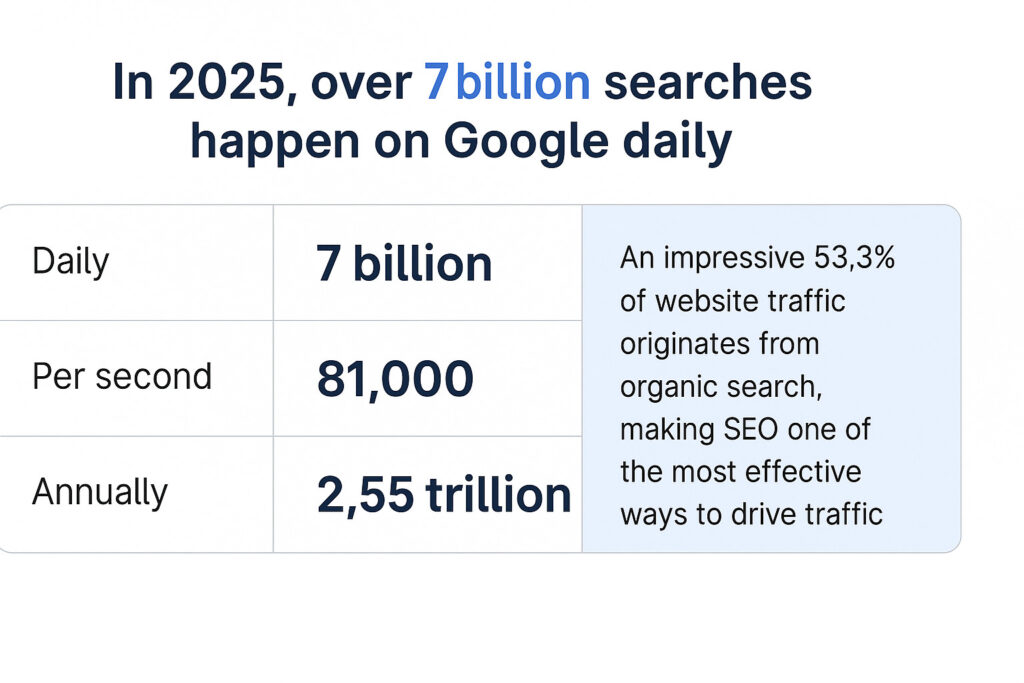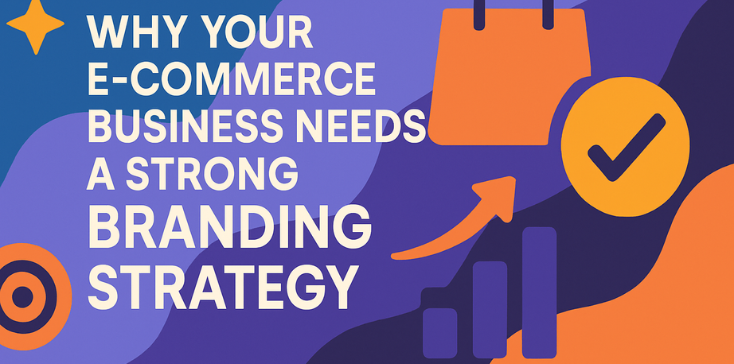Running an online store without e-commerce SEO is like opening a shop in the middle of the desert. You might have amazing products, but no one can find them. The online world is fiercely competitive, and if you’re a business owner, you need a solid SEO strategy.
With help from e-commerce SEO agencies and companies, online stores can rank higher in search engine results. If you’re selling clothes, dry fruits, or any niche product, and you’re not showing up on Google, you’re essentially invisible to your audience. SEO for e-commerce websites ensures your ideal customers can discover you.

Keywords Are the Compass: Mastering Keyword Optimization for E-commerce SEO
In the world of e-commerce SEO, keywords are like a compass guiding potential customers to your store. They help search engines understand your content and connect your products to user searches.
However, you can’t just stuff your site with random keywords. It’s about strategically identifying, placing, and using the right terms. Use tools like Ahrefs, SEMrush, or Google Keyword Planner to find ranking keywords.
Effective keyword optimization means focusing on long-tail phrases and blending high-volume keywords. For example, instead of targeting just “fashionable clothes,” aim for something like “women’s breathable and comfortable clothing for all seasons.” Once you have your keyword list, naturally incorporate them into your product titles, meta descriptions, URLs, and blog content.
Building Blocks of Success: On-Page SEO Essentials from an Ecommerce SEO Company
Think of on-page SEO as the storefront of your website, your first impression. Mastering this means a higher ranking and better user engagement.
Work with an e-commerce SEO company to ensure:
- Proper title formatting using H1, H2, and H3 tags.
- Clear, keyword-rich headings and subheadings.
- Optimized meta descriptions, image alt texts, and internal linking strategies.
These small details enhance user experience and can lead to higher conversion rates. On-page SEO is not just about visibility; it’s about user trust and seamless navigation.
Behind the Curtain: Technical SEO That Powers E-commerce Performance
The unsung hero of e-commerce SEO is technical SEO. It ensures your website runs smoothly and is easily indexed by search engines.
A professional e-commerce SEO agency can help you optimize:
- Website speed: Use compressed images, browser caching, and a content delivery network (CDN).
- Mobile-friendliness: Ensure your website is responsive and functions well on all devices.
- Logical URL structure: Keep it clean and keyword-focused.
- Schema markup: Implement rich snippets like ratings, pricing, and stock availability to enhance search listings.
When technical SEO is aligned, your site performs better both for users and search engines.
Go Mobile or Go Home: The Mobile-First SEO Imperative for E-commerce
In today’s digital age, mobile optimization isn’t optional; it’s essential. Over 2.71 billion people shop online, with more than half using mobile devices.
Search engines now prioritize mobile-first indexing, meaning your site’s mobile version matters most for rankings.
Ensure that your e-commerce site:
- Loads quickly on mobile.
- Has tap-friendly buttons.
- Features a readable text without zooming.
- Provides a smooth and secure checkout experience.
With guidance from a top ecommerce SEO agency, your mobile optimization can drive higher traffic and conversions.
Content That Converts: Using Blogging to Boost E-commerce SEO
Blogging is a powerful tool in your e-commerce SEO strategy. A well-crafted blog attracts organic traffic, showcases your expertise, and supports keyword optimization.
Each blog post is an opportunity to:
- Rank for specific search queries.
- Link internally to product and category pages.
- Answer customer questions.
Try content like “Creative Ways to Add Dry Fruits to Your Breakfast” or “What Makes Our Indo-Chinese Dishes a Must-Try?”. Use ecommerce-focused keywords naturally and link back to relevant product pages.
A strategic blog builds authority, enhances user experience, and boosts sales.
Reviews & Ratings: The Trust Factor in Ecommerce SEO
Customer reviews are not just for buyers; they’re also for search engines.
Fresh, user-generated content keeps your page keyword-rich and builds trust. Positive (and even negative) reviews play a critical role in conversion and SEO ranking.
Encourage your customers to leave reviews professionally. Show star ratings in search results to make listings attractive and click-worthy. Respond to all reviews, especially negative ones, with professionalism and transparency. This boosts both customer trust and SEO authority.
Backlink Power: Building Authority Through Quality Links with an E-commerce SEO Agency
Backlinks are like digital endorsements. When authoritative websites link to your store, it signals to search engines that your content is trustworthy and valuable.
A skilled e-commerce SEO company can help you:
- Create shareable content (infographics, data reports, product guides).
- Earn backlinks through guest posts, influencer partnerships, and directories.
- Focus on quality over quantity. Links from high-authority domains are more impactful.
This strategy improves domain authority and raises your overall search ranking.
Measuring and Improving Your E-commerce SEO Strategy
If you don’t measure it, you can’t improve it.
Once your SEO efforts are in place, use tools like Google Analytics and Google Search Console to track performance. Regularly audit your website to:
- Fix broken links.
- Update outdated content.
- Discover new keyword opportunities.
SEO is an ongoing journey. Work with an experienced e-commerce SEO agency to analyze, optimize, and adapt your strategy for long-term success.
Final Thoughts: Your E-commerce SEO Roadmap to Success
From keyword optimization and on-page SEO to blogging, mobile optimization, and backlink building, every tactic helps your store become more visible and profitable.
Think of e-commerce SEO as your best 24/7 salesperson constantly working to attract traffic and drive sales. With a smart, consistent SEO strategy, your store can rise above the competition.
And if you’re feeling overwhelmed? You can confidently rely on Growwithba, a trusted e-commerce SEO company that understands your business is your brand’s face, and we’re here to help you bring in more traffic and sales.
Frequently Asked Questions
1. Why is SEO important for e-commerce?
E-commerce SEO helps drive organic traffic to your store by making it more visible on search engine result pages (SERPs).
2. What is SEO in e-commerce?
E-commerce SEO is the process of optimizing an online store’s visibility and attracting more organic traffic through search engines.
3. What is the main role of SEO?
The main goal of SEO is to improve your website’s visibility in search results and increase organic traffic.
4. What are the 4 types of SEO?
- On-page SEO: Optimizing elements on your website.
- Off-page SEO: Building authority through external activities.
- Technical SEO: Ensuring your site runs smoothly and is crawlable.
- Local SEO: Focusing on geographic-based searches and local visibility.
![BA LOGO 2[1] Logo](https://growwithba.com/wp-content/uploads/elementor/thumbs/BA-LOGO-21-rctdwc6e44k0gscol760abdhmupxvrcikanaiw5kow.png)


